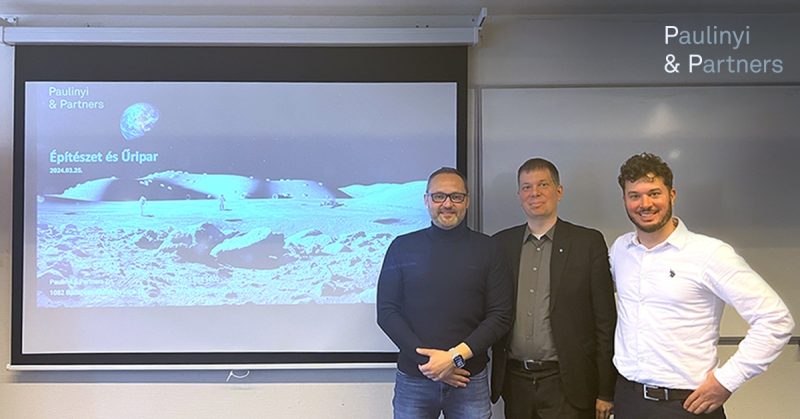This year, we were honored to cooperate with the European Space Agency (ESA) to improve the energy efficiency of real estate developments by analysing satellite data. Using satellite Earth observation imagery, our aim is to map the urban heat island effect and use the data to improve the effectiveness of our existing predictive simulations.
Among other things, this project was also discussed with students of the Master's degree in Space Engineering at the Budapest University of Technology and Economics by President and CEO of our firm, Dr. Gergely Paulinyi DLA and Automation Development Manager, Roland Németh who were invited by Dr. László Bacsárdi, Vice President of the Hungarian Astronautical Society. Our colleagues presented how space science can support architecture and innovation on Earth, and participants were also given an insight into the R&D activities of our firm.
The presentation also discussed how minimising the urban heat island effect is an increasingly urgent challenge with climate change, as reducing temperatures during the summer cooling season, for example through air conditioning, is a major contributor to greenhouse gas emissions, especially in densely populated urban areas. We introduced our solution to this issue, the HeatScape Resolve.
Our lecturers also mentioned that in our first space science project, we designed a base on the Moon that can be built from the rock on the surface and our building can withstand extreme climatic conditions and protects against space radiation. We were able to present our designs to a scientific audience at the International Astronautical Congress in Paris in 2022, where we received many positive comments.
